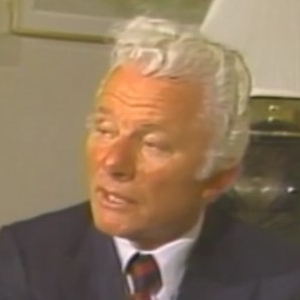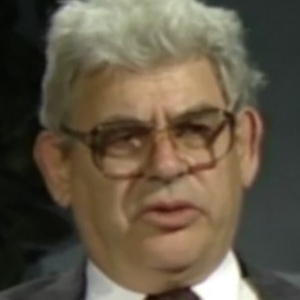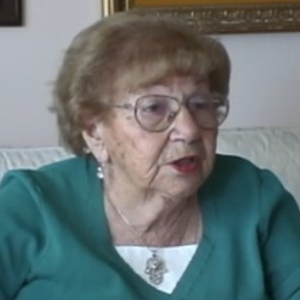George Fox
George describes humiliation by the SS and Gestapo and how he was severely injured by a SS officer.
George Fox was born George Fuks February 13, 1917, in Berdichev, Russia (currently Berdychiv, Ukraine). His parents Itzchak and Riwka Fuks had four children. George and his twin sister Hanna and two other boys. George felt the effects of antisemitism very early in his childhood. He remembers seeing his father for the last time before he was killed in 1919 in a Pogrom attack in Russia. After this attack George, his mother, and siblings moved to Leningrad where they briefly lived before returning to his mothers hometown of Brzeziny in Poland.
In 1922 George went to live with his Uncle Lipman and grandmother in Germany. In Germany he attended regular school and Reform Hebrew School until 1929. In 1929, George and his grandmother returned to Brzeziny and went to regular school in Poland. George remembers experiencing a lot of antisemitism in his classroom. Jewish children were frequently beat up, and teachers did not pay attention. In order for George to attend high school, his brother had to pay a fee because of restrictions that were placed on Jews. When his brother could no longer pay this fee, George went to work in Poddebic cutting wood.
In 1939 George was forced to enlist in the Polish army. He remembers all soldiers being treated baldy, but Jewish soldiers being treated worse. George was wounded badly and injured both of his hands while serving in Skarżysko-Kamienna. He spent three weeks in a hospital close to Lublin before escaping with the help of a nurse and Jewish couple. In 1936 George was working in Bielsko, Poland (currently Bielsko-Biała, Poland) for a textile manufacturing company before returning to Brzeziny 1937.
By May 1940 a ghetto was established in Brzeziny. Every Jewish family was moved to a small section of town and some houses had three families per room. In 1941 George was selected to work on a labor camp in Zgierz, Poland. In this camp he was cutting turf in water and putting it on fields to be used for fuel consumption. After working in Zgierz, George was chosen by a senior SS officer to work in his personal gardens.
In May of 1942 part of the ghetto was liquidated. Mothers with children under 10 were the first to be taken, then three days late the rest of the ghetto was taken. George, his mother, and sister were taken to the Łódź ghetto where he stayed until 1944 working with leather. In the summer of 1944, the Łódź ghetto was liquidated. George was deported to Auschwitz with his mother, where she was sent to the gas chambers upon arrival. After spending two weeks in Auschwitz, George was taken to Gleiwitz Poland where he stayed until January of 1945. He was then marched to Gross Rosen, followed by Flossenburg in Germany where he worked digging graves and burning corpses. Finally, George was transferred to a forced labor camp in Pöcking where he stayed until he was liberated on May 3 by American forces.
George then lived in Hanover, Germany from 1945-1948 where he met his wife Fanny. In 1948 George and Fanny immigrated to Canada through the Tailor Project, an initiative that brought approximately 2,500 tailors and their families to Canada between 1948 and1949 after surviving the Holocaust. They arrived in Halifax and went straight to Toronto. Fanny worked as a tailor and George worked first in a chocolate factory followed by a grocery store. They had two sons and opened a store in Toronto together.
George Fox died May 9, 2019, and his full testimony is part of the Canadian Collection of Holocaust survivor testimonies. It is preserved in the USC Shoah Foundation’s Visual History Archive and accessible through the Ekstein Library.
George FoxHe [SS officer] took out his gun… split my head… blood was coming out. He said, ‘Judenschwein, go home!’
Testimony to discover
-
Ghetto

Isadore Burstyn
Isadore describes the ghetto synagogue being surrounded by the Gestapo, who humiliated the congregation upon exiting and shot their rabbi.
Listen -
Police Encounter

Jacob Abas
Jacob describes a time he and his father had an encounter with the Dutch police.
Listen -
Living under false identity

Elizabeth Fischer
Elizabeth recalls how she was able to bypass travel restrictions placed on Jews in Hungary.
Listen -
Liberation

Jacques Mydlarski
Jacques recalls hiding in a cellar from bombings the night before learning his area was liberated by the allies. He also tells how he encountered alli...
Listen
Educators & Students
Educational guides
Check resources